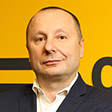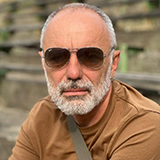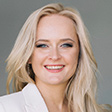9 липня 2012, 21:43
Taras Kuzio, Language Becomes the New Battleground in Ukraine

http://www.jamestown.org/blog/
Jamestown Foundation Blog
Timely analysis and commentary on geopolitical developments in Eurasia
Monday, July 9, 2012
Language Becomes the New Battleground in Ukraine
By Taras Kuzio
On July 4, a new law on languages was adopted in its second reading amid massive infringements of parliamentary procedures (see analysis of the transcript athttp://www.pravda.com.ua/news/2012/07/5/6968170/). Over 200 changes proposed by opposition deputies were ignored.
Parliamentary Chairman Volodymyr Lytvyn "resigned" in what most believe was a theatrical show reminiscent of Parliamentary Speaker Leonid Kravchuk resigning from the Communist Party (KPU) politburo after the KPU had been banned on August 24, 1991. Lytvyn claimed he knew nothing of the impending vote and had been deliberately removed from parliament by an invitation to a meeting at the presidential administration.
Lytvyn has a history of not attending delicate votes, passing the baton to his personal friend, Communist deputy speaker Adam Martyniuk (http://www.kyivpost.com/opinion/op-ed/lytvyn-is-no-hero.html). Most Ukrainians are skeptical of Lytvyn's claims because of his chameleon-like political past and since his future political life depends on him distancing himself from the controversial language law. Lytvyn is seeking election in Zhitomir oblast, to the west of Kyiv, which is 100 percent against the law. He has lobbied for unprecedented subsidies, a record-breaking 100 million hryvnia this year, for the district he is campaigning in (http://www.pravda.com.ua/articles/2012/07/5/6968192/).
The chameleon-like nature of Lytvyn could also be seen in his faction's 20 deputies who voted for the law. They are not concerned about the fate of the People's Party (former Agrarian Party) because it will not cross the 5 percent threshold in the October 30 parliamentary elections.
Leaked Party of Regions documents detailing internal plans for the elections confirm the language law is an additional element in "political technology" (http://www.pravda.com.ua/news/2012/07/6/6968275/). Like the populist social policies outlined in March, it is meant to mobilize the Russophone voters in eastern-southern Ukraine.
According to a recent poll by the Razumkov Center think tank, two thirds of respondents (between 52-79 percent) described the language law as pure electioneering. Forty-four percent support Ukrainian as the only state language (60-84 percent of western-central Ukrainians do), while 25 percent support Russian receiving official status (40-48 percent of eastern-southern Ukrainians support Russian) (http://www.pravda.com.ua/news/2012/07/5/6968135/).
Opinion polls have consistently shown over the last two decades that the language question is not a priority for most Ukrainians compared to "bread and butter" issues such as employment, corruption, and inflation. Yuriy Lukanov, head of the Independent Trade Union of Journalists, told the Jamestown Foundation that "Language is the last card for the government as all other areas of its program have failed. They have adopted a law that will only bring chaos into Ukrainian political life." This will certainly be the case.
Ukraine was a major center of computer education in the USSR, and on February 1, its modern day hackers brought down the web sites of the government, presidential administration and parliament in protest of the closure of the file sharing web site ex.ua. Ukrainian hackers have teamed up with international hackers "Anonymous," threatening to repeat this again. In a taped appeal by "Anonymous" they state, "We should not be afraid of the authorities, the authorities should be afraid of us"
(http://www.youtube.com/watch?v=ztFJUSYxib4&feature=player_embedded).
Meanwhile, protests have spontaneously grown throughout Ukraine, some of which have been brutally dispersed by riot police (http://www.youtube.com/watch?v=HnedD8Cp3Mo&feature=player_embedded). The crowds in Kyiv have been small – although violent – and tear gas and pepper spray was used by both the police and opposition. Growing violence is not a good sign and makes these protests different from earlier non-violent opposition protests under President Leonid Kuchma, including the peaceful Orange Revolution. Vitaliy Klichko, whose Ukrainian Democratic Alliance for Reforms (UDAR) party is polling 10 percent, was injured during clashes in Kyiv. Although from Donetsk himself, he sarcastically said "Why is the main language in Germany German? [...] Why is the main language in France French?" (New York Times, July 4).
Language is a red line in every country, whether Canada, Spain, Belgium or Ukraine, as it is a very emotional question. President Viktor Yanukovych therefore shows how cut off he is from reality when he says "I am interested in stability in the country" (New York Times, July 4). For example, the opposition's refusal to join the Constitutional Assembly will now be permanent making it impossible, as the EU and Council of Europe insist, to adopt a new constitution through dialogue between the opposition and the authorities.
Severe criticism of the law by the opposition, NGOs, Church leaders (http://www.pravda.com.ua/news/2012/07/4/6968067/) and intellectuals (http://blogs.pravda.com.ua/authors/pantyuk/4ff48eaf53cab/, http://1-12.org.ua/2012/07/04/776) is both well placed and disingenuous. Imprisoned Yulia Tymoshenko described the adoption of the language law as not only directed against democratic values but a declaration of war against independent Ukraine (http://www.tymoshenko.ua/uk/article/yulia_tymoshenko_05_07_2012_01). Arseniy Yatseniuk used similar language when he called for the overthrow of the "bandit regime" (http://www.pravda.com.ua/news/2012/07/6/6968267/).
The 1989 law on languages, adopted three years before the USSR disintegrated, is out of date and badly in need of replacing and "Europeanizing." President Viktor Yushchenko, a champion in Ukrainian language rhetoric, did little to improve the status of Ukrainian or propose a new law on languages. In fact, the greatest contribution to expanding Ukrainian in education was undertaken by Kuchma.
Lukanov told Jamestown, "The opposition also does not demonstrate its principles. The opposition's defense of the Ukrainian language mobilizes its electorate but, apart from language, the opposition has failed to offer a realistic alternative program."
The language law is likely to provide dividends in the upcoming elections for the Party of Regions and the nationalist Svoboda (Freedom) party. Many Ukrainians believe it has always been the authorities' intention to push western Ukrainians into the arms of Svoboda so that "Zapadyntsi" (Westerners) can be depicted – as in Soviet times – as crazy nationalists, thereby mobilizing eastern Ukrainians to vote for the Party of Regions as their "protectors."
In the last two years, Yanukovych has crossed many red lines but the language question is the most profound as it touches a huge number of Ukrainians. There is no going back, and Yanukovych and his team will now have to fight to the last to stay in power; if the opposition wins the next elections, the alternative is either exile or criminal charges against the current authorities.





